Traditional Okinawa Village and Omoro Arboretum
About Omorosaushi
The oldest collection of songs in Okinawa “Omorosaushi”
Enjoy reading the interaction between man and nature!
It is the oldest collection of songs in Okinawa with a total of 22 volumes incorporating songs themed on islands and villages which were sung from the 12th century through early 17th century.
“Omoro (former Umui)” is an Okinawan dialect that stands for old songs handed down on the islands of Okinawa and Amami. “Umui” is a corruption of “Omoi” meaning a metrical expression of flowery words strung together to express the thought of mind. The 1st volume was edited in 1532, the 2nd in 1613 and the 3rd through 22nd in 1623, and the recording of “Omorosaushi” ends there.
Although “Omorosaushi” is generally said to be the “Manyoshu of Okinawa”, there is a big difference between the two. The “Manyoshu” is a collection of poems whereas the “Omorosaushi” is a collection short songs.
Omorosaushi “Awa”
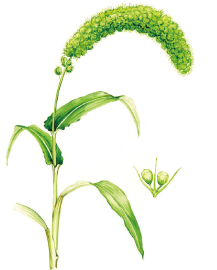
| Omoro name | Awa |
|---|---|
| Japanese name | Awa |
| Family name | Poaceae |
| Okinawan name | Awa |
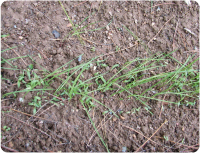
Location within the park
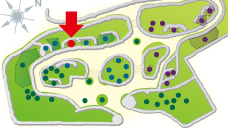
Omorosaushi 1193 of Volume 17 Awa
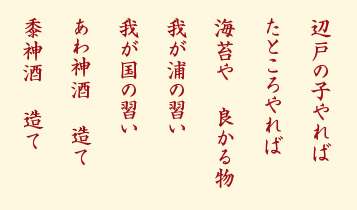
Meaning of the song
The child of Hedo is refined, hence eats rich laver.
Since our hometown is well raised, we get to savor fine laver.
Because Hedo is a community with fertile earth, let’s make sacred sake from abundantly harvested Setaria italic and Panicum miliaceum,, and offer it to God along with rich laver and pray for good harvest.
Omorosaushi “Sakura”
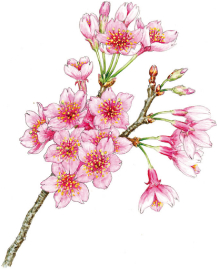
| Omoro name | Sakura |
|---|---|
| Japanese name | Hikanzakura |
| Family name | Rosaceae |
| Okinawan name | Sakura |
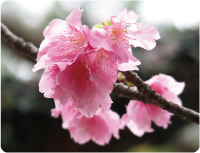
Location within the park
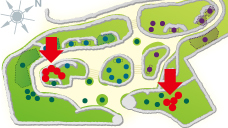
Omorosaushi 989 of Volume 14 Sakura
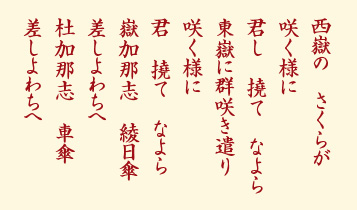
Meaning of the song
Just like how Prunus campanulata of Nishitake mountain bloom
Kimishi priestess shall dance with flexibility
Just like how Prunus campanulata bloom in clusters on Higatake mountain
Kimishi priestess shall dance with flexibility We are blessed with beautiful sunshade provided by the great mountain We are blessed with a beautiful umbrella provided by the great forest
Omorosaushi “Kimi”
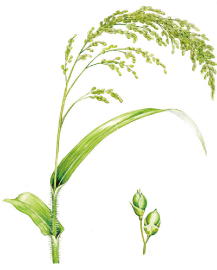
| Omoro name | Kimi |
|---|---|
| Japanese name | Kibi |
| Family name | Poaceae |
| Okinawan name | Mahjin, Chimi, Chimiawa |
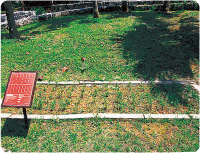
Location within the park
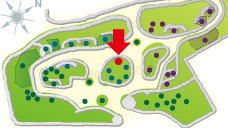
Omorosaushi 672 of Volume 12 Kimi
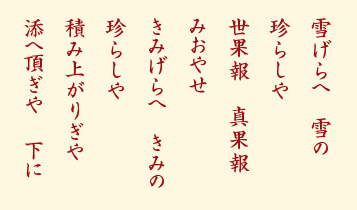
Meaning of the song
How splendid it is to harvest such fine rice
Offer this global happiness and rich harvest to the king
How splendid it is to harvest such fine millet
below the Keiseimon gate
※Gaho・・・year of good harvest
※Magaho・・・year of good harvest
Omorosaushi “Koganege”
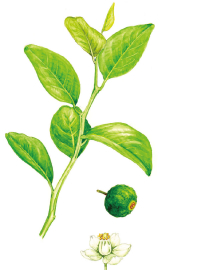
| Omoro name | Koganege |
|---|---|
| Japanese name | Hiraremon |
| Family name | Rutaceae |
| Okinawan name | Kuganih, Shihkwahsah |
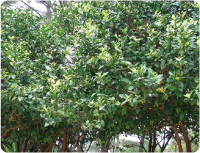
Location within the park
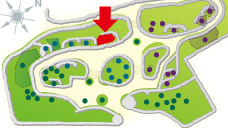
Omorosaushi 75 of Volume 2 Koganege
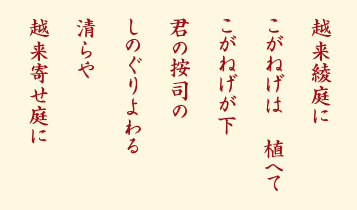
Meaning of the song
Plant trees of Citrus in the Ayamiya Garden of the Goeku Castle,
How beautiful it is to see the top priestess dancing under the trees of Citrus
In the garden of Goeku Castle








